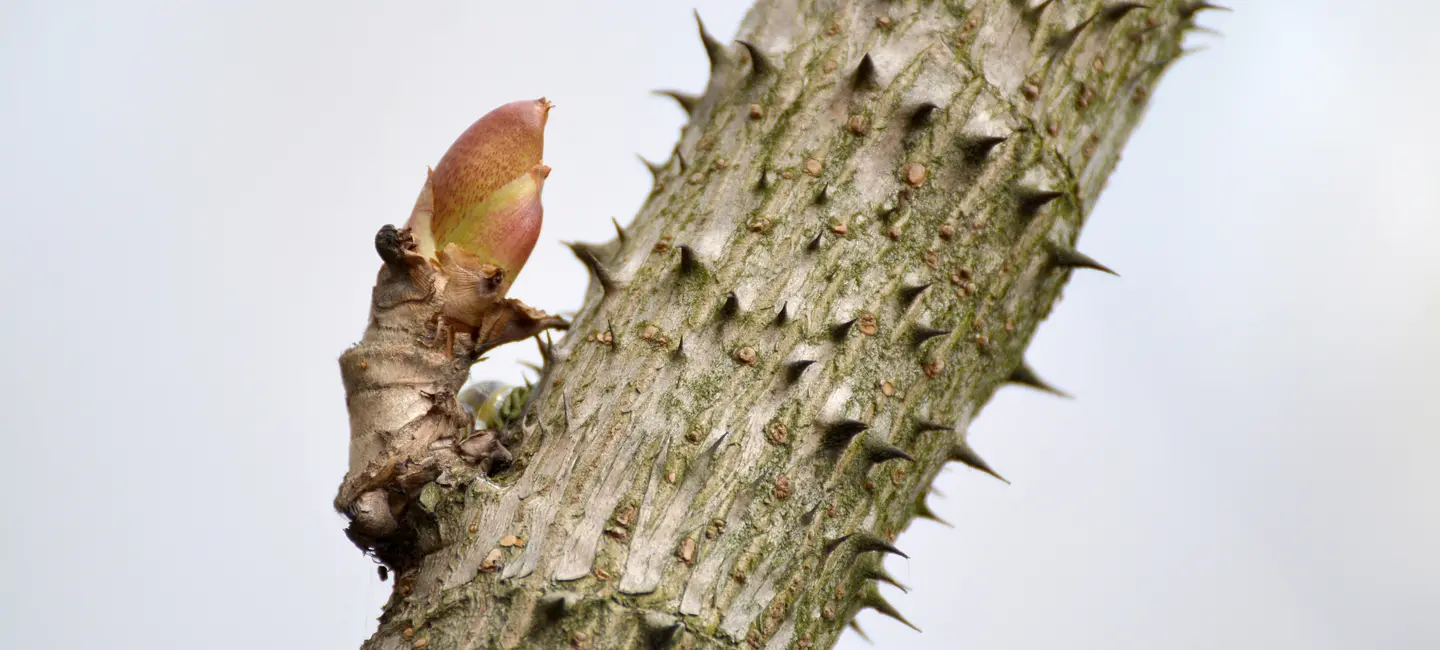
Manchurian thorn is a tree. The bark and roots are used to make medicine.
People take Manchurian thorn by mouth as an adaptogen and for obesity, headache, depression, and other conditions, but there is no good scientific evidence to support its use.
Is It Effective?
NatMed Pro rates effectiveness based on scientific evidence according to the following scale: Effective, Likely Effective, Possibly Effective, Possibly Ineffective, Likely Ineffective, Ineffective, and Insufficient Evidence to Rate.
- Obesity.
- Tiredness.
- Weakness.
- Headache.
- Depression.
- Stress.
- To improve the immune system.
- Other conditions.
More evidence is needed to rate the effectiveness of Manchurian thorn for these uses.
Is it Safe?
There isn't enough information to know how Manchurian thorn might work as a medicine.
When taken by mouth: There isn't enough reliable information to know if Manchurian thorn is safe or what the side effects might be.
Special Precautions & Warnings:
Pregnancy and breast-feeding: There isn't enough reliable information to know if Manchurian thorn is safe to use when pregnant or breast-feeding. Stay on the safe side and avoid use.
Diabetes: Manchurian thorn might lower blood sugar levels. Watch for signs of low blood sugar (hypoglycemia) and monitor your blood sugar carefully if you have diabetes and use Manchurian thorn.
Liver disease: Manchurian thorn might make liver disease worse.
Medications for diabetes (Antidiabetes drugs)
Interaction Rating=Moderate Be cautious with this combination.
Manchurian thorn might lower blood sugar. Diabetes medications are also used to lower blood sugar. Taking Manchurian thorn along with diabetes medications might cause your blood sugar to go too low. Monitor your blood sugar closely. The dose of your diabetes medication might need to be changed.
Some medications used for diabetes include glimepiride (Amaryl), glyburide (DiaBeta, Glynase PresTab, Micronase), insulin, pioglitazone (Actos), rosiglitazone (Avandia), chlorpropamide (Diabinese), glipizide (Glucotrol), tolbutamide (Orinase), and others.
Medications that can harm the liver (Hepatotoxic drugs)
Interaction Rating=Moderate Be cautious with this combination.
Manchurian thorn might harm the liver. Taking Manchurian thorn along with medication that might also harm the liver can increase the risk of liver damage. Do not take Manchurian thorn if you are taking a medication that can harm the liver.Some medications that can harm the liver include acetaminophen (Tylenol and others), amiodarone (Cordarone), carbamazepine (Tegretol), isoniazid (INH), methotrexate (Rheumatrex), methyldopa (Aldomet), fluconazole (Diflucan), itraconazole (Sporanox), erythromycin (Erythrocin, Ilosone, others), phenytoin (Dilantin), lovastatin (Mevacor), pravastatin (Pravachol), simvastatin (Zocor), and many others.
Herbs and supplements that might harm the liver: Manchurian thorn might harm the liver. Taking Manchurian thorn along with other natural products that might also harm the liver can increase the risk of liver damage. Other products that might affect the liver include bishop's weed, borage, uva ursi, and others.
Herbs and supplements that might lower blood sugar: Taking Manchurian thorn along with other herbs and supplements that might lower blood sugar could lower blood sugar too much. These herbs include alpha-lipoic acid, devil's claw, fenugreek, garlic, guar gum, horse chestnut, Panax ginseng, psyllium, Siberian ginseng, and others.
There are no known interactions with foods.
The appropriate dose of Manchurian thorn depends on several factors such as the user's age, health, and several other conditions. At this time there is not enough scientific information to determine an appropriate range of doses for Manchurian thorn. Keep in mind that natural products are not always necessarily safe and dosages can be important. Be sure to follow relevant directions on product labels and consult your pharmacist or physician or other healthcare professional before using.
Angélique du Japon, Aralia elata, Aralia mandshurica, Aralie Japonaise, Espino de Manchuria, Manchurian Angelica Tree, Mandschurische Aralie.
Information on this website is for informational use only and is not intended to replace professional medical advice, diagnosis, or treatment. While evidence-based, it is not guaranteed to be error-free and is not intended to meet any particular user’s needs or requirements or to cover all possible uses, safety concerns, interactions, outcomes, or adverse effects. Always check with your doctor or other medical professional before making healthcare decisions (including taking any medication) and do not delay or disregard seeking medical advice or treatment based on any information displayed on this website.
© TRC Healthcare 2024. All rights reserved. Use and/or distribution is permitted only pursuant to a valid license or other permission from TRC Healthcare.
